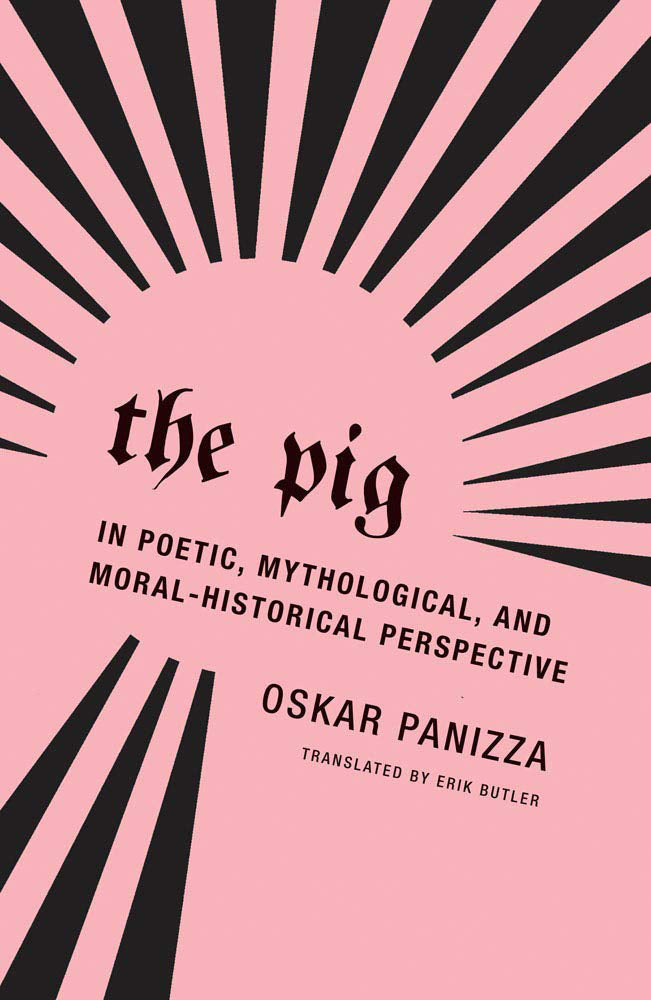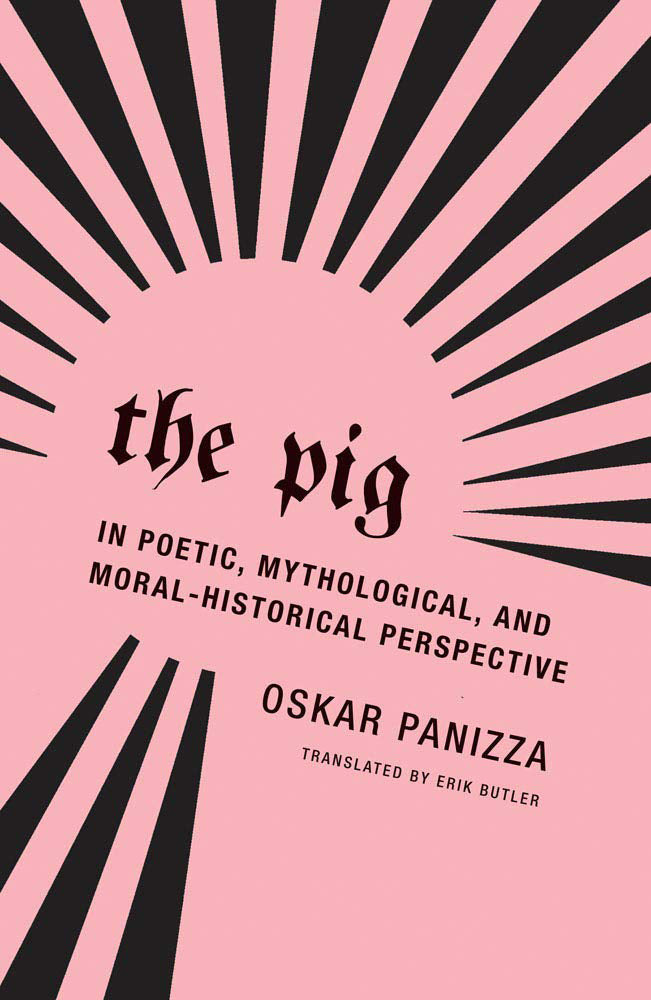The Pig: In Poetic, Mythological, and Moral-Historical Perspective
The Pig: In Poetic, Mythological, and Moral-Historical Perspective
Oskar Panizza
Couldn't load pickup availability
Translated, with an introduction, by Erik Butler / March 2016 / 4.5 x 7, 120 pp. / 978-1-939663-15-3
“The Pig is the Sun...” So begins Oskar Panizza’s outrageously heretical and massively erudite essay on the pig, originally published in 1900 in Zurich Discussions, a journal self-published by Panizza in Switzerland after he had served a year in a Munich prison on 93 counts of blasphemy for his play The Love Council. Moving from the Rig Veda to the Edda to Ovid, from the story of Tristan and Isolde to Nordic celebrations of Christmas, from Grimm’s fairy tales to Swedish folklore to Judeo-Egyptian dietary restrictions, the author contends, through a dizzying exposition of painstaking philological argumentation, that the miraculous swine occupies a central, celestial position as the life-giving force animating the entire universe, usurping the place of God as the beginning and end of all things.
Oskar Panizza (1853–1921) was a German psychiatrist turned avant-garde author. In 1894 he published his notorious play The Love Council: “A Heavenly Tragedy in Five Acts” that depicted the spread of syphilis among humanity in 1492 through a senile god, an idiot Christ, a promiscuous Mary, and a depraved Pope Alexander VI. The play brought Panizza instantaneous literary fame that resulted in a twelve-month prison sentence. Moving to Zurich, he published a journal, Zurich Discussions, the majority of which he wrote himself under a series of pen names. After being expelled from Switzerland, he relocated to Paris until his 1899 publication of anti-Germanic verse led to his finances being seized. He spent the last sixteen years of his life in a Bavarian mental institution.
“They ought to erect either a stake for [Panizza] or a monument. Our public should finally learn that atheism also has its heroes and martyrs.”—Theodor Fontane
“Panizza is a terrorist...”—Heiner Müller
Press
“We owe [Erik Butler], and Wakefield Press, thanks for giving us a sample in English of this obscure serial. For dry humor from a Decadent nihilist, it can’t be beat.”
—M. Kasper, Rain Taxi


